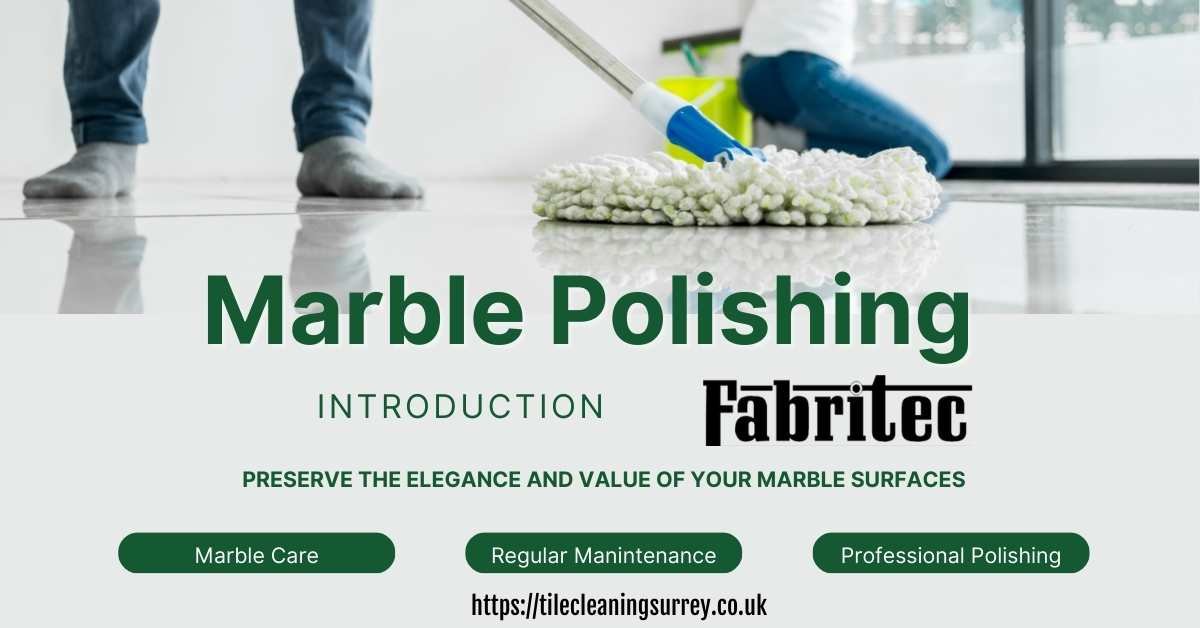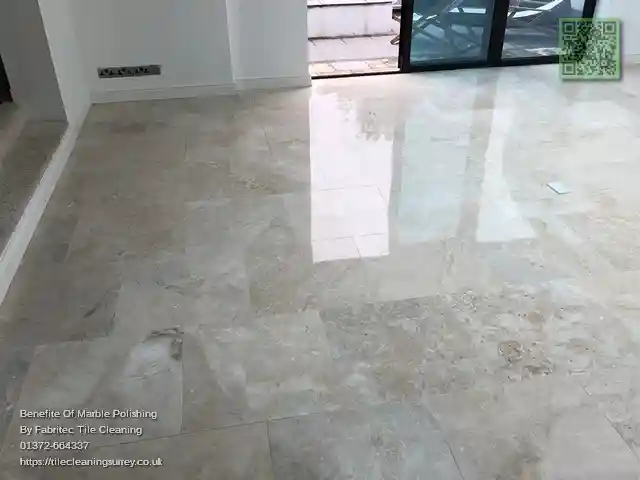


9 August 2024 by
sitemanager
Marble surfaces are popular in homes and businesses because of their luxury look. However, regular care, including marble polishing, is necessary to keep them looking good and lasting longer. The importance of this procedure goes beyond just keeping the surface looking good; it also adds to the property’s value, helps preserve the environment, and fits well with overall interior design. So, marble polishing is not simply a maintenance task but a key method to maintain marble’s beauty and value.
Marble, a metamorphic rock formed from limestone, is prized for its unique veining and luxurious appeal. Commonly used in flooring, countertops, and decorative elements, marble is renowned for its aesthetic properties and ability to add sophistication to any space. Moreover, marble’s history and geology give it a unique place in the realm of natural stones, offering a bridge between natural beauty and human craftsmanship.
Marble’s relative softness, with a Mohs hardness rating of 3 to 4, makes it susceptible to scratches, staining, and etching, necessitating regular maintenance.
Marble’s relative softness, with a Mohs hardness rating of 3 to 4, makes it susceptible to scratches, staining, and etching, necessitating regular maintenance. Over time, daily use can lead to various issues with marble surfaces. Scratches, stains, and dullness are common problems that detract from marble’s natural beauty and symbolic value. Environmental factors such as humidity, spills, and foot traffic can exacerbate these issues, resulting in a worn and aged surface. Neglecting marble maintenance not only affects its appearance but can also diminish the value of your property.
Marble polishing is a comprehensive process designed to restore and protect the beauty of marble surfaces.
The first step in marble polishing is evaluating the marble’s condition. Professionals assess the extent of wear and damage to determine the appropriate polishing method. This step often involves a detailed inspection using both visual and instrumental analysis to ensure all underlying issues are identified.
Thorough cleaning is essential before polishing. This removes dirt, grime, and any previous sealants that could interfere with the polishing process. Eco-friendly cleaning agents are often used to minimize environmental impact.
Various techniques, such as diamond honing, diamond polishing, powder polishing, and crystallizing polishing buffing, are used to restore the marble’s shine. Honing smooths out light surface imperfections, and polishing brings out the marble’s natural luster. Advanced techniques may include ultra-fine diamond polishing pads for an ultra-refined finish. Polishing costs are around £30.00 per square meter, depending on the condition of the marble.
After polishing, sealing the marble is crucial to protect it from future stains and damage. Sealing enhances the longevity of the polished surface, keeping it looking pristine for longer. Modern sealants are designed to be both effective and environmentally friendly, ensuring that the marble is protected without compromising sustainability.

Regular marble polishing is crucial for preserving the elegance, durability, and value of your marble surfaces.
Regular polishing restores marble’s natural shine and beauty, transforming it into a stunning feature in any room. The reflective quality of polished marble can also enhance lighting in a space, contributing to improved energy efficiency.
Polishing strengthens the marble surface, making it more resistant to wear and tear. This not only preserves the marble’s integrity but also reduces the frequency of necessary repairs, extending the lifespan of your surfaces.
Regular polishing can prevent the need for expensive repairs and replacements, making it a cost-effective solution over time. For floors with deep scratches, heavy wear, damage, or uneven tiles, grinding—also known as restoration—may be required. This process typically starts at £80.00 per square meter and takes 2 to 3 times longer than standard polishing. Additionally, well-maintained marble surfaces can significantly enhance property value, providing a high return on investment.
A polished marble surface is easier to clean and maintain, promoting a more hygienic environment. This is particularly important in areas like kitchens and bathrooms, where maintaining cleanliness is crucial for health and safety.
By extending the life of marble surfaces, regular polishing reduces the demand for new materials, contributing to environmental sustainability. This practice aligns with broader goals of reducing resource consumption and minimizing waste, making it an eco-friendly choice.
To maintain marble surfaces’ pristine condition and enhance the longevity of professional polishing, homeowners must undertake regular maintenance. Here are crucial practices.
Thanks to expert knowledge and specialized equipment, professional marble polishing offers superior results, precision, and long-term protection that DIY methods often can’t match.
Choosing the right marble polishing service is essential to ensure your marble surfaces receive the best care and achieve a flawless, long-lasting finish.
Start cleaning the surface with a mild detergent and water for at-home marble polishing. Then, use a commercial marble polishing paste with a soft cloth, applying it in circular motions. Remember to test in an inconspicuous area to make sure you are happy with the results. Professional polishing will be necessary for deeper scratches or significant stains.
Marble floors should typically be polished every 1–3 years, depending on the amount of foot traffic and the level of wear. High-traffic areas may require more frequent polishing to maintain their shine and durability.
No, vinegar is acidic and can damage marble surfaces, leading to etching and dullness. Instead, you should use a pH-neutral cleaner specifically designed for marble to avoid any damage.
Dullness, visible scratches, etch marks, and staining clearly indicate that your marble surfaces need polishing. If the marble has lost its reflective quality, it is time for a professional polish.
Yes, professional marble polishing is worth the cost. It restores the natural beauty of your marble, enhances its durability, and prolongs its lifespan. It is a cost-effective alternative to replacing worn-out marble surfaces.